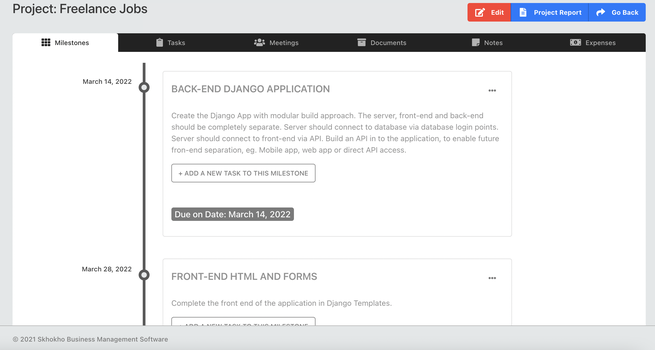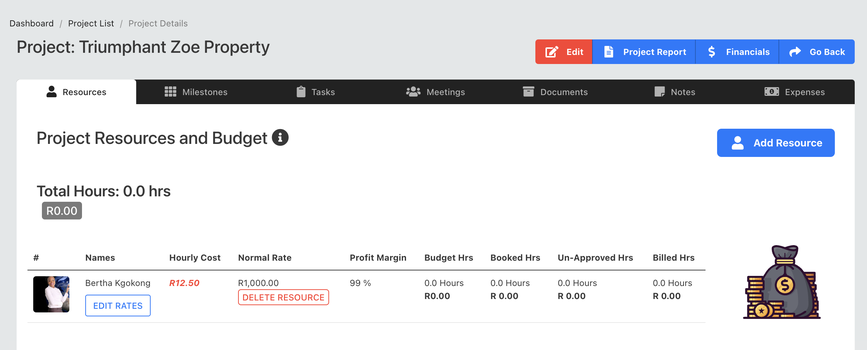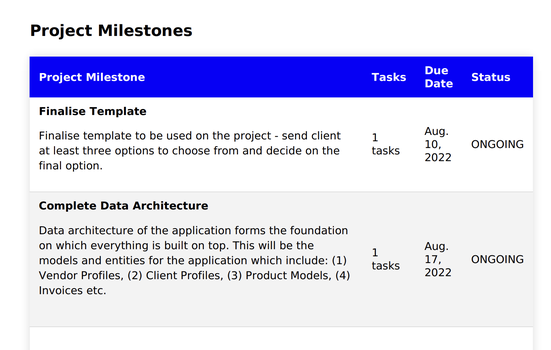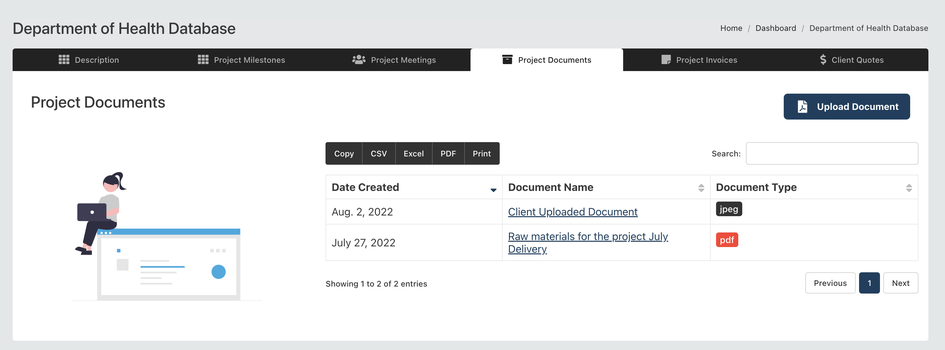What are Roles and Responsibilities of Project Manager?
Project management is one of the most important and critical aspects of any business. It is the art of planning, scheduling, and controlling resources to bring about the successful completion of specific goals and objectives.
Project management has many facets, but the main goal is always to ensure that all aspects of the project are completed on time, within budget, and to the required standards.

In this article we will be discussing the key roles and responsibilities of project managers, we will cover the following points:
- Who is the Project Manager?
- What qualifications do you need to be a Project Manager
- What Skills are needed for a good Project Manager?
- What does a Project Manager do?: A day in the life of a project manager
- Key roles and responsibilities of a Project Manager
Who is the Project Manager?
The Project Manager is the leader responsible for managing the project. He or she is responsible for ensuring that the project is completed on time, within budget, and to the required quality standards.

The Project Manager is also responsible for ensuring that all stakeholders are kept informed of progress and that any risks or issues are promptly addressed.
The Project Manager should have a good understanding of project management principles and practices, and be able to apply these to the specific project.
He or she should also have good people skills, as the role involves working with a wide range of people with different skills and knowledge.
The Project Manager is typically a full-time position, and may be supported by a team of Project Coordinators or Project Assistants.
What qualifications do you need to be a Project Manager?
1. Undergraduate Qualifications for Project Managers
To be a project manager, you need to have at least a bachelor's degree in a relevant field such as business administration or engineering.
2. Post-graduate Qualifications of a Project Manager
It is also beneficial to have a post-graduate degree in project management or a related field.
3. Project Management Professional Accreditations and Certifications
There are several professional accreditations and certifications that can help you become a project manager, such as the Project Management Professional (PMP) certification from the Project Management Institute (PMI).

4. Other Qualifications
In addition to the above qualifications, it is also helpful to have strong problem-solving, communication, and organizational skills.
The qualifications that will set you apart from your competitors are your problem-solving, communication, and organizational skills. These skills are essential for project managers because they need to be able to effectively solve problems that arise during projects, communicate with project stakeholders, and keep projects organized and on track.
What Skills are needed for a good Project Manager?
A good project manager must have a number of skills in order to be successful. These skills include:
-The ability to lead and motivate a team: A good project manager should be able to lead and motivate their team in order to achieve the best results.
-Excellent communication skills: A good project manager should be able to communicate effectively with all stakeholders in order to ensure that everyone is on the same page.

-Good organizational skills: A good project manager should be organized and have a good plan for how to execute the project.
-The ability to handle stress: A good project manager should be able to handle stress well in order to keep the project on track.
-The ability to make decisions: A good project manager should be able to make decisions quickly and efficiently in order to keep the project moving forward.
These are just some of the skills that a good project manager should have. While not all of these skills are absolutely essential, they are all important to have in order to be successful.
The following as must have Project management skills:
-Leadership
-Communication
-Organizational skills
-Decision making
-Stress management
-Conflict management
What does a Project Manager do?: A day in the life of a project manager
A project manager is responsible for a wide variety of tasks and activities on a daily basis. At the same time, there are tools and systems that can assist project managers with their day-to-day tasks.
Skhokho Project Management software is such a tool. As we list the tasks and responsibilites of project managers, we will also consider how Skhokho Project Management Software can be used to complete these tasks.
1. Project Planning
The project manager is responsible for creating the project plan. This includes identifying the project objectives, scope, schedule, and budget.
The project manager also needs to identify the resources required to complete the project and create a risk management plan.
Skhokho project planning includes defining the following in the project execution plan:
- The project description, deliverables and scope.
- Use the project deliverables to list milestones that must be completed and create specific tasks for every milestone.

2. Resource Planning
The project manager is responsible for ensuring that the project has the necessary resources to be successful. This includes identifying and procuring the necessary equipment, materials, and personnel.
The project manager also needs to ensure that the team is properly trained and prepared to execute the project plan.

Skhokho Project Management Software allows the project manager to add specific resources to the project team. These are people from inside the organisation available for project work. The milestones and tasks created above can then be assigned to these resources.
3. Schedule Management
Project managers are responsible for ensuring that the project is completed on time. This includes creating a project schedule and ensuring that all milestones and deliverables are met.
The project manager also needs to monitor the project progress and make adjustments to the schedule as necessary.
Skhokho allows the project manager to track the schedule by listing the milestones and their delivery dates in a timeline - showing when certain deliverables are due.

The project dashboard also clearly indicates milestones that are overdue, tasks that are overdue and the resource loading - so project managers can clearly see which resources are overloaded with work and which team members are open for work.
4. Cost Management
The project manager is responsible for ensuring that the project is completed within the budget. This includes creating a cost management plan and tracking all project expenses.
The project manager also needs to negotiate with vendors and suppliers to get the best prices for the project.
Skhokho produces clear financials for each project separately, showing the following information:
- Man-hour costs, budgets and billing
- Project expenses and accounts
- Project revenues, profits and margins
Skhokho meets all your project management - cost control needs in one convenient place that is easy to use for your team.
5. Financial Management
The project manager is responsible for ensuring that the project is financially successful. This includes creating a financial plan, tracking project revenues and expenses, and managing project invoices and payments.
The project manager also needs to monitor the project budget and make adjustments as necessary.
6. Engaging Stakeholders
The project manager is responsible for engaging all project stakeholders. This includes identifying the stakeholders, communicating with them, and managing their expectations.
The project manager also needs to ensure that the stakeholders are satisfied with the project results.
Your team can stay aligned on the current status of the project at all times. Skhokho Project Management Software also has a Client Access Portal - a separate front-end for project clients to log in and access (1) Project documents, (2) project schedule, (3) project invoices and (4) project meeting notes - in real-time.

The client access portal simplifies and enables seamless communication between the project team members and clients.
7. Quality Assurance
The project manager is responsible for ensuring that the project meets all quality standards. This includes creating a quality assurance plan and testing all project deliverables.
The project manager also needs to monitor the project quality and take corrective action as necessary.
8. Risk Management
The project manager is responsible for identifying, assessing, and managing project risks. This includes creating a risk management plan and monitoring the project for potential risks.
The project manager also needs to take corrective action to mitigate any risks that arise.
Key roles and responsibilities of a Project Manager: The role of the project manager
Now what we have had a look at what a project manager does and a day in the life of a project manager, there are certain key roles and responsibilities that must be highlighted. These are the main functions that a project manager must perform within a project to ensure its success:
1. Defining the project scope and objectives:
This is the first and most important step in the project management process. The project manager must work with the project sponsor and other key stakeholders to define the goals and objectives of the project. This will ensure that everyone is on the same page and working towards the same goal.
2. Developing the project plan:
Once the scope and objectives of the project have been defined, the project manager must develop a detailed project plan. This plan will outline all the tasks that need to be completed, who will be responsible for each task, and when the task needs to be completed.

3. Resource allocation:
The project manager must then allocate the necessary resources (e.g. people, time, money, etc.) to each task in the project plan. This step is critical to ensuring that the project has the necessary resources to be successful.
4. Monitoring and controlling the project:
The project manager must constantly monitor and control the project to ensure that it is on track. This includes tracking the progress of each task, resolving any issues that arise, and making changes to the project plan as necessary.
5. Communicating with stakeholders:
The project manager must keep all stakeholders informed of the project’s progress and ensure that they are happy with how the project is going. This communication is essential to maintaining a good relationship with the stakeholders and ensuring their continued support.
These are the five key roles and responsibilities of a project manager. While there are other important tasks that a project manager must perform, these five roles are the most critical to the success of the project.









